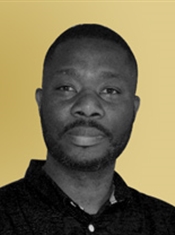
Lessons from Spain 2014
SHEFFIELD (Julio Chitunda's African Message) - Eight days of competition and 16 games involving three African teams, and the 2014 FIBA Basketball World Cup finished sooner than Angola, Egypt and Senegal would have liked.
The lessons to take out of Spain 2014, more than what most players as well as coaching staff describe as great experience are clear: Africa national teams have five years - until the 2019 FIBA Basketball World Cup - to build on consistent basketball programmes in order to succeed outside the African continent.
Egypt showed some potential in their Group A campaign, Senegal stunned the world with an astonishing victory over Croatia, and Angola could have advanced to the Round of 16.
Drawn in Group, which also included four teams (Brazil, France, Serbia and Spain) that advanced to the Quarter-Finals says it all about Egypt's chances in the tournament.
For Egypt, who lost all their five games, this World Cup can only translates as a transitioning process with Wael Badr and Sheriff Genedy calling their playing careers a day, and the likes of Youssef Shousha and Moustafa Elmekawi stepping up and grabbing their chances of becoming influential members of the Pharaohs team.
Coach Amr Aboul Kheir regularly says that AfroBasket 2015 will confirm Egypt full resurgence.
For what I saw and felt by talking to members of the Egyptian team in Granada, where they played their Group Phase, we should not challenge coach Abou Kheir's belief, especially because they are doing what ambitious teams should do: rebuilding.
And rebuilding from scratch - Egypt played their first World Cup in two decades - takes time to pay off.
Meanwhile, the African champions Angola failed to advance to the elimination round for the first time in their last five appearances at FIBA's flagship event, suggesting that a new cycle as well as a new generation of players is urgently needed to keep them among the world's best.
Nevertheless, Angola's World Cup campaign will be highly marked by their costly 79-55 defeat to Mexico, followed by a near-miss loss to Slovenia and a triumph over Australia on the final day of the Group Phase.
When it comes to think what Senegal offered and learned from this edition of FIBA flagship event, three aspects come to mind.
The first impression is that their very physical game needs a lot more than that.
The second aspect that has been undermining Senegal's game over the past few years comes from their point guard position that should have contributed more than they really have.
Watching Xane Dalmeida turning the ball over six times - accounting for one third of the team's turnovers - was really worrying, considering that Dalmeida was the starting playmaker.
Four years ago, I interviewed Boniface Ndong (now serving as the general manager of Senegal's national team), and he pointed out how their big men could do little if they did not have playmakers. To this day, that gap still exists.
Then there are alleged internal issues that tend to seriously to compromise the team's performances like that of Djibril Thiam, who did not play a single minute during the tournament following alleged disagreements with the coaching staff.
Senegal head coach Cheikh Sarr explained, after his team's elimination, what should be done in order to improve their game.
"We have learned that we need to have good three-pointer shooters. When we have open court we have to shoot the ball well," he explained.
"We also have to play good defense as well as pick and roll. We tried but our opponents shoot the ball very well."
Let's wait and see what these three teams have to offer in the next 12 months.
Julio Chitunda
FIBA
FIBA's columnists write on a wide range of topics relating to basketball that are of interest to them. The opinions they express are their own and in no way reflect those of FIBA.
FIBA takes no responsibility and gives no guarantees, warranties or representations, implied or otherwise, for the content or accuracy of the content and opinion expressed in the above article.

















